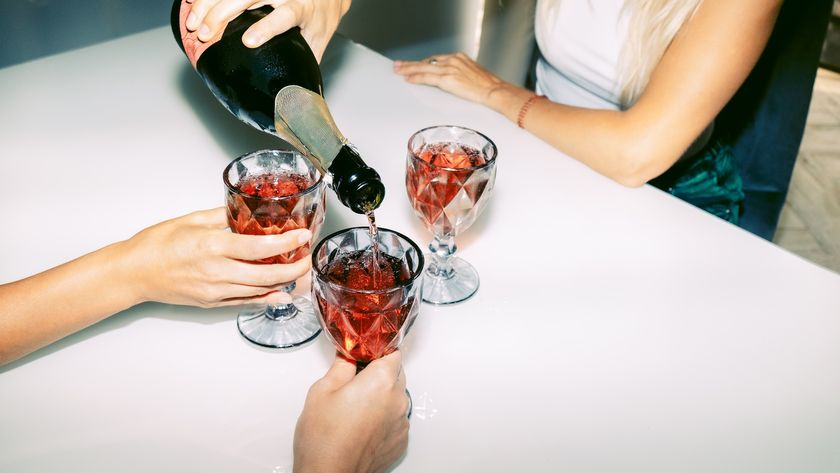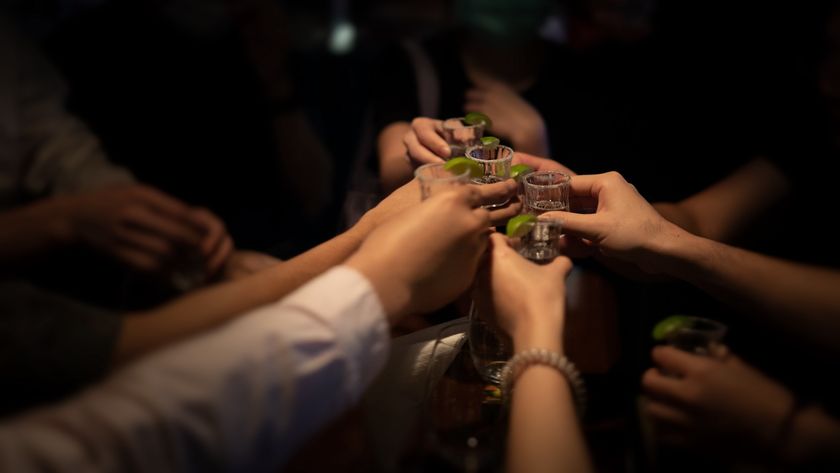FDA Criticized for Ban on Alcoholic Energy Drinks
While many health professionals and lawmakers are cheering the Food and Drug Administration's decision yesterday to declare caffeine an illegal and unsafe additive to manufactured alcoholic beverages, critics say the move is an infringement of consumer rights by the government.
The FDA issued warnings yesterday (Nov. 17) to four companies, including Four Loko maker Phusion Projects, after conducting a year-long review that found no scientific support for the claim that the addition of caffeine to these alcoholic beverages is generally recognized as safe. The companies have 15 days to create a plan to remove the caffeine from their products, or remove them from store shelves.
But the Competitive Enterprise Institute, a nonprofit group that supports limited government, said the FDA had gone too far.
"It's just one more example of the FDA reaching into a practice that people can, and often do, do safely and trying to eliminate it," said Gregory Conko, a senior fellow at the institute.
Attracting consumers
Conko acknowledged that drinking caffeine with alcoholic beverages has the ability to dangerously mask the effects of intoxication. But people can responsibly drinking caffeine and alcohol together, in the form of rum-and-cola and other mixed drinks, and there shouldn't be a difference in legality of those drinks and drinks that are manufactured, he said. [Related: Brewing Controversy: Experts Say Four Loko Worse Than Mixed Drinks]
But because the manufactured drinks are sold in colorful, super-size containers, younger consumers — even underage kids — find them attractive, David Vladeck, director of the Bureau of Consumer Protection of the Federal Trade Commission, said at a news conference.
Sign up for the Live Science daily newsletter now
Get the world’s most fascinating discoveries delivered straight to your inbox.
"These products are cheap and cost less than $3 a can," Vladeck said. Making matters worse, the caffeine "can mask the consumer's sense of intoxication, so young, inexperienced drinkers may not understand how drunk they are," he said.
Caffeinated alcoholic beverages have grown in popularity since they came onto the scene about eight years ago. Two leading manufacturers saw their sales increase by 67 times between 2002 to 2008, according to the Centers for Disease Control and Prevention.
Numerous hospitalizations from alcohol poisoning, auto accidents and sexual assaults have been attributed to consumption of Four Loko, FDA Commissioner Dr. Margaret Hamburg said at the news conference.
Looking at the evidence
In deciding whether to prohibit caffeine from being added to manufactured alcoholic drinks, the FDA reviewed scientific literature to see the effects of the two substances together. Conko said the studies government officials used to make their decision are based on mixed drinks, not manufactured drinks, so their research is based on a slightly different product.
One study, published in April in the journal Addictive Behaviors, found that people who drank alcohol mixed with energy drinks were three times more likely to leave a bar highly intoxicated, and four times more likely to try to drive, than bar patrons who had drinks with no caffeine.
Another study published this month in the journal Alcoholism: Clinical & Experimental Research found that high consumption of energy drinks was associated with alcohol dependence and heavy drinking.
People who drink alcohol mixed with energy drinks are three times more likely to binge drink than those who don't mix the two substances together, according to the CDC.
It's hard to know for sure whether the drinks cause people to engage in risky behavior, or if risk-takers tend to gravitate toward the drinks, said Aaron White, a health scientist administrator at the National Institute on Alcohol Abuse and Alcoholism.
"For one reason or another, we see a different pattern of behavior and consequences in people who consume energy drinks with alcohol than people who drink alcohol alone," White told MyHealthNewsDaily. "I think the move [by the FDA] was made in order to protect the public from what could be a real recipe for disaster."
- Brewing Controversy: Experts Say Four Loko Worse Than Mixed Drinks
- Alcohol and Pot Damage Young Brain's Decision-Making Center
- Heavy, Not Modest, Drinkers' Babies Have More Birth Defects
This story was provided by MyHealthNewsDaily, a sister site to LiveScience.












